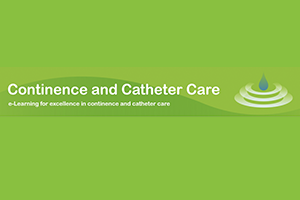Health Education England elearning for healthcare has worked with Oxford Academic Health Science Network, Oxford University Hospitals NHS Foundation Trust, Oxford Health NHS Foundation Trust, Great Western Hospitals NHS Foundation Trust and Health Education England Thames Valley to develop an elearning programme to promote excellence in continence and catheter care.
Providing high quality continence care is an essential part of nursing care but it is an area that is often not well understood. Urinary incontinence can have a profound impact on a person’s life, often leading to social isolation which can lead to a deterioration in physical and mental health. Poor continence care can exacerbate this. Nursing staff should be able to recognise those who are at risk of being incontinent and support them to maintain their continence. Nurses should also support patients who are incontinent to regain their continence.
This programme, for nursing staff and health care assistants across all settings, aims to improve knowledge and awareness of all aspects of continence and catheter care. The programme includes the different types of incontinence and the therapies and treatments that can be offered to patients. Emphasis will be placed on avoiding catheterisation and on strategies for reducing the risk of catheter acquired urinary tract infection (CAUTI) in situations where catheterisation is unavoidable.
The elearning programme comprises two sessions: “Promoting best practice in continence care” and “Promoting best practice in catheter care”.
To access the elearning please visit: https://www.e-lfh.org.uk/programmes/continence-and-catheter-care/



Comments are closed.